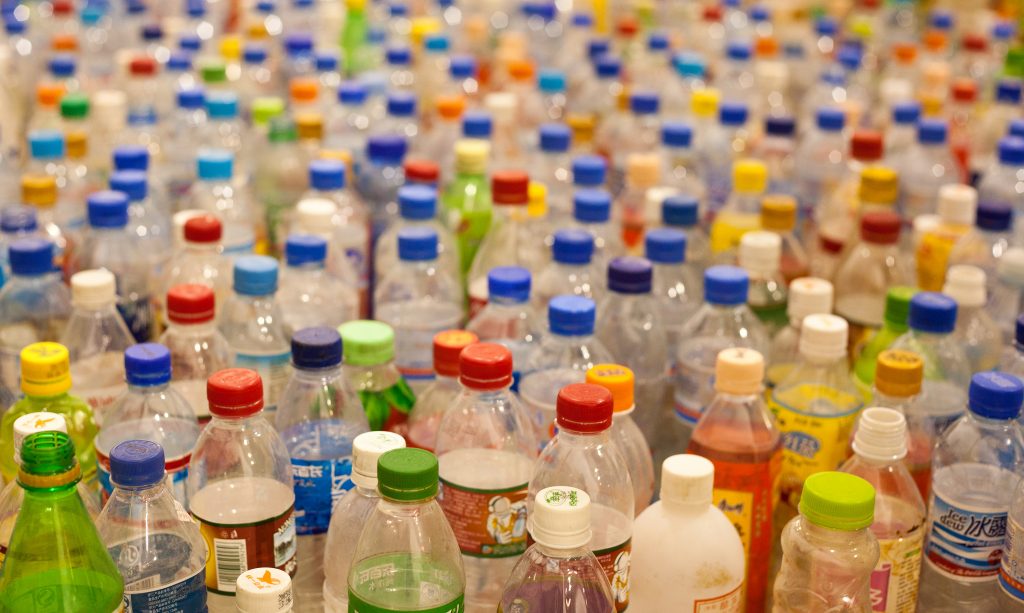
As consumers, how can we both consume more sustainably and influence companies to produce more sustainably? A final-five finalist in the 2018 Trinity College Dublin and developmenteducation.ie development issues series, Maebh Ni Ghuairim presents her 7 top tips.
One of the Sustainable Development Goals that I feel is often neglected is number 12, which is ensuring Sustainable Consumption and Production. We often feel helpless looking at the SDGs because, as individuals, we feel we can’t do much. However, I believe that this is one of the SDGs that every single person can make a meaningful contribution to.
As consumers we can both consume more sustainably and influence companies to produce more sustainably. Read on for some tips on how to do exactly that.
1. Start using the reusable alternative to disposable items

Cutting down on plastic bottles, coffee cups and plastic bags seems obvious, but it’s one of the most effective ways to reduce your waste. 2.5 billion (!!!) disposable cups are used every year in the UK. By asking your local barista to make your coffee in your flask rather than a disposable cup, you help cut down number of items going to the landfill after a single use. Companies like Costa are now offering discounts to those who don’t use disposable cups – an extra incentive to cut down on your waste!
2. Start shopping at bulk stores
What are bulk stores? These are shops where you bring your own containers to buy packaging-free dry goods like grains and pasta. Shops like Aldi and Lidl are starting to cater to the demand too, by offering nuts, fruits and veg unpackaged. This means that buying unpackaged goods doesn’t have to cost you an arm and a leg. The rise in demand has also lead to bulk stores popping up all over Dublin – check to see if there’s one near you and try it out.
3. Start buying ugly produce
When you see a slightly bruised banana, or a misshaped apple, be sure to pick those up. Our first instinct is to avoid less-than-perfect produce, but there’s usually nothing at all wrong with it. However, our preferences are having a devastating effect on food wastage – up to 30% of vegetable crops are not even harvested because retailers have rejected them on the basis of them not looking pretty enough. Then there is more wastage in shops, as shop owners must throw away rejected produce not bought at the end of the week. By choosing “ugly” foods, you’re showing the retailer that there is still demand for all types of food, and helping reduce food waste.
4. Start repairing
Nothing is less sustainable than buying new cheaper shoes every 3 months because you’ve worn through your old ones. Try investing in one good quality pair of shoes, and bringing them to your local cobbler’s if they get damaged. You’ll be surprised how cheap it is, and how much you save when you repair instead of replace. The same concept applies to all your belongings – clothes, tech gadgets, and everyday household items. Sites like iFixIt offer free repair guides for everything you can think of. No better way to stop unnecessary consumption, and save some much needed money.
5. Start going to swap shops & using services like Nu.
Everyone knows how amazing charity shops can be, but swap shops are the new Big Thing. They’re basically pop up markets, where you can exchange your clothes for tokens, and spend your tokens on other second-hand clothes. You should also check out Nu., an online store where you can borrow and lend clothes for special occasions. You can get a whole new wardrobe regularly through these services without having to rely on cheap clothes shops. Fast fashion is disastrous for the environment, and is the second dirtiest industry in the world, after oil. By refusing to shop from these stores, you’re taking a stand against the epitome of unsustainable production.
6. Use a Menstrual Cup
To everyone that doesn’t have periods, skip to number 7. But I had to mention menstrual cups, because they’re an insanely sustainable alternative to tampons and pads. You only have to buy one, and they last you up to 10 years. Feminine care is not the type of waste we like to think about, but it really does add up. A woman uses 11,000 tampons in a lifetime, which don’t break down quickly in the landfill – imagine how much waste you could avoid with one simple change?
7. Repurpose
Use jam jars as containers for bulk store shopping. Use old pillow cases as cloth shopping bags. Use empty wine bottles as vases. The options are limitless. As you begin to repurpose more, you buy less new things, and less old things end up in landfill.
Don’t forget to go easy on yourself
The first couple weeks and months of becoming aware of how much waste one person can produce can be hard. Trying to change that is a huge lifestyle shift, and that’s never easy. You may slip up or have to be wasteful in certain circumstances, and that’s okay. As long as you know you’re putting your actions behind your values, and helping shape a more sustainable world
More info:
For more, see the developmenteducation.ie sections on overconsumption and ethical consumption

